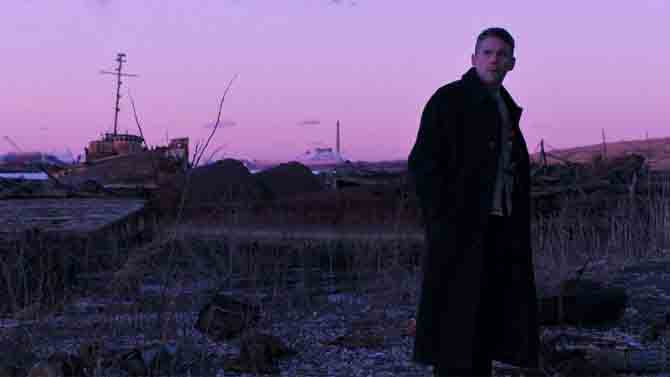
Yale Comparative Literature
Many modern monotheists have combined religion with environmentalism and transcendentalism. They posit questions such as, “Can God forgive us for destroying His creation?” and they wonder if environmental degradation should be considered a sin. “First Reformed,” a new movie by Paul Schrader, explores these questions and other themes, including death, introspection and life’s greater purpose.
Starring Ethan Hawke and Amanda Seyfried, “First Reformed” is scheduled to be released on June 22, 2018. Written and directed by Schrader, the film spans a few months in 2017 and takes place in a bleak, grey, suburban upstate New York town. The plot follows Reverend Toller, a former army chaplain–turned-priest, as he attempts to reconcile the loss of his son, a fleeting feeling of purpose and frequent tests of his faith.
Mary, played by Amanda Seyfried and one of the church’s few congregants, approaches Reverend Toller, played by Ethan Hawke, and explains that her husband, Michael, is in need of emotional counseling. The married couple is expecting a child, but Michael is struggling with an internal conflict: He believes it is unjust to bring a child into a world that destroys its own environment. Michael, a radical environmental activist, commits suicide after one meeting with Toller, ostensibly giving his life to justly bring a new life into the world.
Attempting to become a Christ-like figure, Toller embarks on a mission to carry this environmental cross and protect what he and Michael consider God’s creation. In many ways, Toller effectively fills the void left in the world by Michael. Not only does Toller gradually grow into an environmental activist, but he also begins to emotionally console and care for Mary, who is now without a husband and still bearing a child. Thus, the plot is propelled by Toller’s attempt to mix religious devotion and environmentalism to fight pollution and the degradation of the natural world both perpetrated by big business and the large, corporate churches that fall under the financially-persuasive thumb of capitalism.
Hawke brilliantly conveys Toller’s distance and separation from the modern church.
“This isn’t the church that called me,” he says to Joel Jeffers, another minister. Toller’s sermons are plain, generally lacking any sense of charisma. Instead, he seems emotionlessly to transfer the word of God from the pulpit to the congregants. With the exception of Michael and Mary, Toller generally has little contact with his congregants — he is even hesitant to meet with Michael at all. Furthermore, Toller, who still uses a flip phone in 2017, is more worried about the history of First Reformed, the name of the church, and the very building itself. He gives tours of the facility to schools and various groups of tourists. One of his greater worries is his comparison to the former ministers who ran First Reformed.
Such self-doubt follows Toller throughout the whole film. At several points he doubts and struggles with his own ability to pray, despite the fact his profession and life-calling is dependent on an ability to speak to God. This doubt originates with the death of his son, Joseph, whom Toller had convinced to join the army — a family tradition. Joseph dies on tour in the Middle East, and Toller’s wife leaves him as a result. Thus, Toller both doubts his actions and lives with tremendous regret.
Religious symbolism is subtle but apparent throughout the film. The supporting characters are named Mary, Michael, Joseph, Joel and Esther — some of the most prevalent and important characters in the Bible. Toller’s bearing of Michael’s mission symbolizes Toller’s role as either a Christ-figure or a prophet. These symbols only highlight the film’s combination of religion and environmentalism.
The environmentalism is emphasized by the cinematography and setting. Upstate New York is filled with forests, but it is still bleak and somewhat somber. Some scenes were even filmed at environmental waste sites, emphasizing the destitution of some parts of suburbia: In this suburban town, a manufacturing plant under the fictitious company BALQ pollutes the area and is the fifth-biggest polluter in America. This bleak setting leaves the void to be filled by Toller’s religious environmental crusade.
“Every act of preservation is a form of creation,” Toller says at the end of the movie.
Overall, the movie’s themes, performances and direction come together to create a fantastic cinematic experience. Providing a profound depiction of grief, purpose and religious environmentalism, “First Reformed” is a must see. The theaters should be full on June 22.
Nick Tabio | nick.tabio@yale.edu







